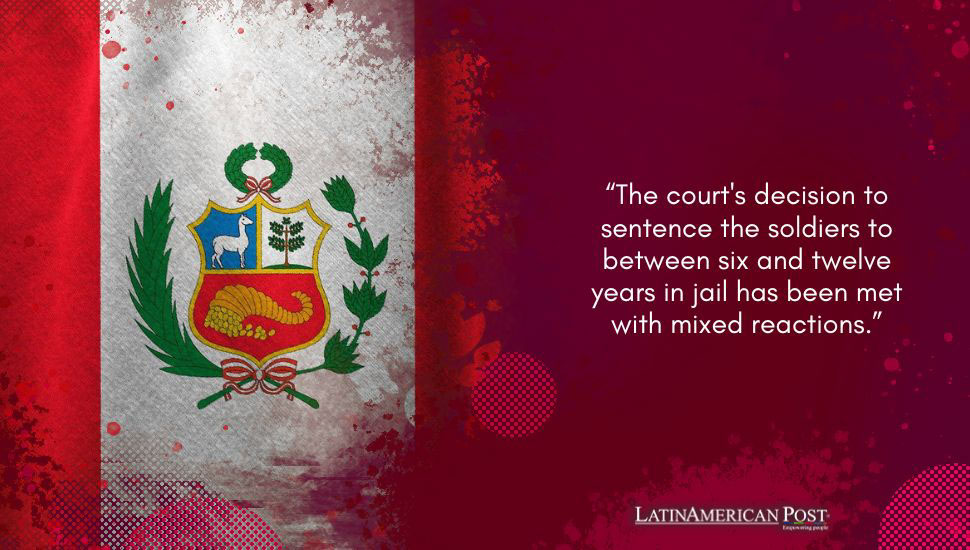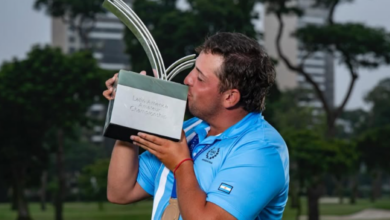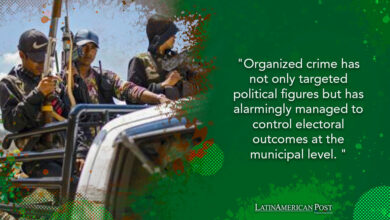The Fight Against Crime Impunity in Peru

The sentencing of retired soldiers in Peru for crimes against humanity highlights the ongoing struggle against crime impunity, but the fight is far from over.
A recent court ruling in Peru has sentenced ten retired soldiers for the systematic rape of nine teenage girls and women during the country’s armed conflict decades ago. While this verdict marks a historic moment in the fight for justice, it also underscores the persistent issue of crime impunity that plagues Latin America. The survivors’ disappointment with the relatively short sentences highlights a broader frustration with the legal system’s inability to adequately punish perpetrators of heinous crimes.
The court’s decision to sentence the soldiers to between six and twelve years in jail has been met with mixed reactions. Rights groups have celebrated the ruling as a significant milestone in bringing perpetrators of crimes against humanity to justice. However, for the survivors who have been fighting for justice for decades, the sentences feel insufficient. They argue that the severity of the crimes warrants much harsher penalties.
The soldiers, deployed to the districts of Manta and Vilca in the Huancavelica region, were found guilty of systematically raping local girls and women inside army bases, at checkpoints, and in their own homes. These acts of violence, committed between 1984 and 1995, were part of a broader pattern of abuse during the government’s fight against the Maoist Shining Path rebels. Indigenous villagers, often caught in the crossfire, were frequently targeted by security forces on suspicion of collaborating with the rebels.
The Broader Context of Sexual Violence
The widespread nature of sexual violence during this period was documented in a 2003 report by Peru’s Truth and Reconciliation Commission. The report identified 24 women who had been raped in the Manta and Vilca area alone, resulting in at least 32 children being born from these assaults. Nationwide, more than 5,300 women were reported to have been sexually abused during the armed conflict, with 83% of these abuses committed by security forces.
This pattern of violence is not unique to Peru. Across Latin America, sexual violence has been used as a weapon of war, often with little to no repercussions for the perpetrators. The sentencing of retired soldiers in Peru is a rare instance of accountability in a region where impunity for such crimes is widespread. However, the relatively lenient sentences raise questions about the effectiveness of the justice system in delivering true justice for survivors.
The Ongoing Fight for Justice
The survivors’ reactions to the sentences highlight the ongoing struggle for justice. One survivor, who gave birth to two children after being repeatedly raped, expressed a desire for harsher penalties, hoping that “these criminals will now go to prison.” The disappointment with the short sentences is compounded by the fact that some of the convicted soldiers did not even show up for their sentencing, further demonstrating the impunity with which they have operated.
Rights groups hope that this case will set a precedent for other alleged crimes from the conflict with the Shining Path to be tried. However, there is a looming threat to this progress. A bill currently making its way through the Peruvian Congress could prevent alleged crimes against humanity committed before 2002 from being brought to trial. If passed, this bill would be a significant setback for justice in Peru, effectively shielding many perpetrators from accountability.
A Regional Perspective on Crime Impunity
The issue of crime impunity is not confined to Peru. Across Latin America, justice systems are often weak, corrupt, or overwhelmed, resulting in widespread impunity for serious crimes. In many countries, influential individuals and groups can evade justice through bribery, intimidation, or political influence. This culture of impunity erodes public trust in legal institutions and perpetuates cycles of violence and abuse.
For example, in Mexico, the fight against drug cartels has led to numerous human rights violations, including extrajudicial killings and disappearances, with little accountability for the perpetrators. In Colombia, despite the peace process with the FARC rebels, many former combatants and other armed groups continue to commit serious crimes with impunity. The situation is similar in countries like Guatemala, Honduras, and El Salvador, where corruption and weak judicial systems hinder efforts to prosecute those responsible for violence and human rights abuses.
The sentencing of retired soldiers in Peru for crimes against humanity is a step in the right direction, but it is not enough. The relatively short sentences and the possibility of a legislative bill that could prevent future trials for similar crimes underscore the ongoing struggle against crime impunity in Latin America. True justice requires more than just symbolic victories; it demands robust legal systems that hold perpetrators accountable, regardless of their status or influence.
Also read: Indigenous Reserve Creation in Peru Marks a Positive Milestone
The fight against crime impunity is essential for building trust in legal institutions and ensuring that victims receive the justice they deserve. It is a fight that must continue, not just in Peru but across Latin America, to break the cycle of violence and create a future where human rights are respected and upheld for all.





